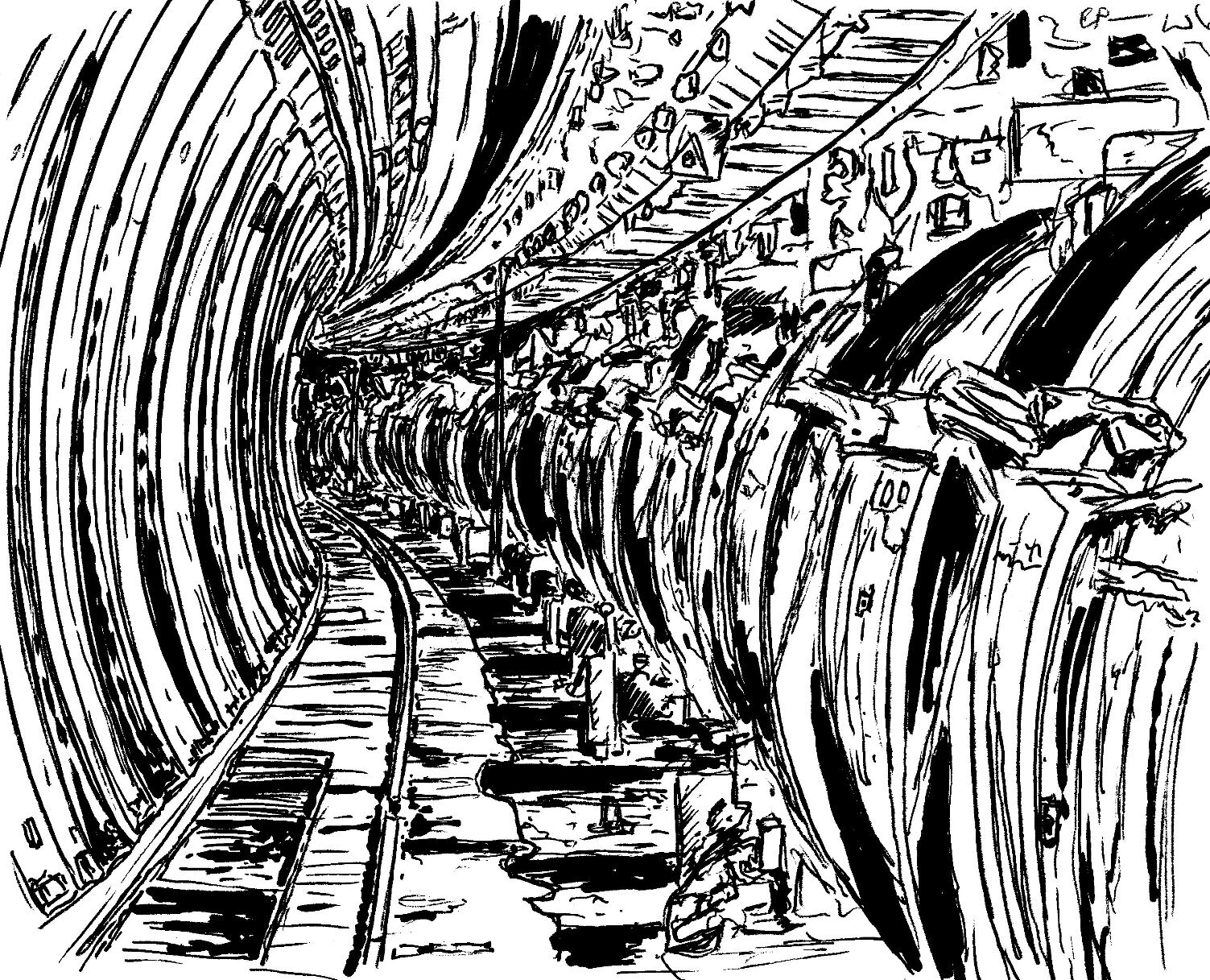Science and society
“Novel technologies and ideas that impinge on human biology and their perceived impact on human values have renewed strains in the relationship between science and society.”
- Paul Berg
In the 19th
century, many people thought the 20th
century would see the rise of science as the dominant force in society, instead of religion. I wouldn’t exactly say that actually happened. In many societies, and particularly in the Third World, religion has grown tremendously in the last 100 years. In some developed countries, it is true that organised religion seems to be less popular than it was in the 19th
century; as is evidenced by shrinking congregations in many English churches. However, I feel that this is perhaps somewhat due to religion falling somehow out of fashion, rather than due to a strong belief or interest in the nature or promise of science. Why aren’t people more interested in science? Perhaps it is because it does not seem to be able to answer many of the huge questions in life that children ask when they first become aware of their place in the Universe. You know the kinds of questions – things like: what is the meaning or purpose of life, how did we get here, what will happen to us after we die? I live in central Somerset and, despite the fact that many of the villages are not large, their churches are usually extensive, detailed, and generally impressive; so it is clear that years ago people did have a strong interest in religion.


Mark: a village in Somerset with a population of less than 1500, but the church is, I feel, rather grand - and beautiful. (Photographs by the author.)
Humans are, as far as we know, the only animals able to imagine themselves in dangerous situations or dying in the future. Since clearly nobody alive has experienced death (excepting, perhaps, those who say they have had ‘near-death experiences’), dying represents a passage into the unknown and it is natural to fear what we do not know. This is surely why religion exists – to give a form of meaning to things we will experience, such as death, that are absolute as well as unknown, but which we can imagine and so are frightened of. And we assume that science is not able to answer the fundamental questions of the type mentioned above; but is this necessarily true?
Is science capable of answering the fundamental questions of existence? Perhaps the reason we think not is because the accomplishments of science seem so modest in contrast to the enormity of the questions we face but have yet to answer, or even to formalise a methodology by which we might try to start answering them. One factor contributing to this situation may be the preference that exists in modern science for applying methodological reductionism, which is defined in the Oxford Companion to Philosophy
as: ‘the scientific attempt to provide explanation in terms of ever smaller entities’. This holds that the best scientific approach involves attempting to reduce explanations to the smallest possible constituents.
In physics, methodological reductionism takes the form of always trying to look on smaller and smaller scales to identify ever more ‘fundamental’ particles. The way this is done is to study particle collisions in ever-more powerful particle accelerators. Such an approach does, in fact, have quite a strong pedigree. Every A-Level physics student is familiar with the experiments of Rutherford with alpha particles and thin gold foil. He was amazed to find that a small number of such particles were sent back by the foil (it was “as if you had fired a 15-inch [artillery] shell at a piece of tissue paper and it came back and hit you”) – an observation that led him to the discovery of the atomic nucleus. This was one of the most important discoveries in nuclear physics and one which led to significant (if potentially harmful or controversial) new capabilities such as
nuclear weapons and nuclear power.
But do modern experiments in particle accelerators offer such potentials? The techniques here, in contrast to Rutherford, seem rather crude – just fire the particles into each other with as much power as we can muster and hope the result will be significant. And the results are … what? Endlessly increased complexity involving phenomena that are so small or devoid of mass that they are more like mathematical formations in field patterns than physical
particles.
If I were trying to solve a difficult mathematical or scientific problem and experienced continuously increased complexity, I would tend to start thinking that my methodology may be in error. Further, as mentioned above, the aim of science should really be to reduce complexity as much as possible and to simplify and unify one’s findings. Consider, for example, a fractal; depending upon how you approach it this can appear as a couple of simple equations with numbers substituted into them, or a series of endless and increasingly complex patterns. Also, the scale upon which these particles are colliding and being studied is the quantum scale, where many complex and curious phenomena are often observed.
So, are the current experiments in nuclear physics likely to result in any really useful outcomes? Who knows? The jury is out and for the above reasons I have some doubts; but if not, we would have to conclude that a tremendous amount of resources and effort have been wasted on equipment such as the Large Hadron Collider at CERN (to be more exact, about a decade of work, at a total cost of about $4.75 billion).
In the context of biology, methodological reductionism involves attempting to explain all biological phenomena in terms of their underlying biochemical and molecular processes. The problem here is that there seem to be severe limits to what can be explained using conventional biochemistry. As mentioned above, much emphasis is placed today on genetics and there is a common perception that nearly everything can be explained through study of the cell DNA; with attendant expectations that most diseases can be cured through
genetic technologies. It is no doubt true that genetic engineering offers many possibilities for the treatments of various conditions, and that gene therapy may be expected to assist in finding cures for a range of diseases.
CERN’s $4.5 billion particle accelerator; Large Hadron Collider or Large White Elephant? (Pen and ink drawing by the author.)
One related high-profile endeavour, the Human Genome Project, was launched amid much fanfare 30 years ago, with promises that it would yield untold health benefits for us all. But Scientific American have reported that Francis Collins, who is a geneticist who once led the Human Genome Project, has said that: “The genetic architecture of common diseases is turning out to be more elaborate than we
might have guessed”. In addition, Scientific American is of the opinion that genetics has not been able to offer the sorts of health benefits that had been envisioned and that COVID-19 has laid bare the need to: “reconsider the hope and money we invest in genetics”. However, they do acknowledge that The Human Genome Project has produced profound health benefits for some individuals, in relation to testing for, and treating, inherited cancers. It also must be acknowledged that the current generation of vaccines, upon which the world places so much hope in its fight against COVID-19, have benefitted in many ways from genetic related technologies and understanding.
Although there is a general perception that genetics can explain most of our highly significant questions relating to cell and animal behaviours, in reality the situation may be somewhat different. For example, two questions that genetics apparently cannot currently answer are: how cells are able to specialise (we know that cells in different organs, such as the skin or liver, have different genes expressed, but how this comes to be is unclear), as well as how animals know instinctively how to do things which are often rather complicated tasks (e.g. a spider spinning a web). To be honest, it might be best to say that genetics gives insights into how various characteristics (e.g. hair or eye colour) are inherited by animals, but currently it fails to answer many of the more profound questions in relation to animal structures and behaviours – whether it will be able to do so in the future remains to be seen. Another example is evolution. Much has been made of the implications of Darwin’s ideas of natural selection and it is likely that this process has, over the years, caused numerous species to adapt to various environments as well as leading to the extinction of those that could not adapt. So, it is certainly a significant contribution, but surely it is wholly inadequate for explaining the extreme diversity in characteristics of plants and animals that are found to exist and thrive in the same environmental conditions. How did such fantastic diversity come to be? I don’t believe that it can be explained by evolution, even when combined with the outcomes of occasional mutations; obviously something else is going on… Finally, I cannot agree with those who
suggest that the existence of the theory of evolution somehow shows that God does not exist. If God’s existence were to be disproved by the fact that humans evolved from primates, one would have to ask where the primates came from, or going back in time, how the amino acids and proteins in the first primordial soups produced life. If this was sparked by lightning, who created that? Going back far enough would lead us to the question of what caused the Big Bang and, unfortunately, I don’t think Darwin can help us here. By the way, despite this I do think that Darwin was a genius and do consider his contribution to biology to be astonishing.



